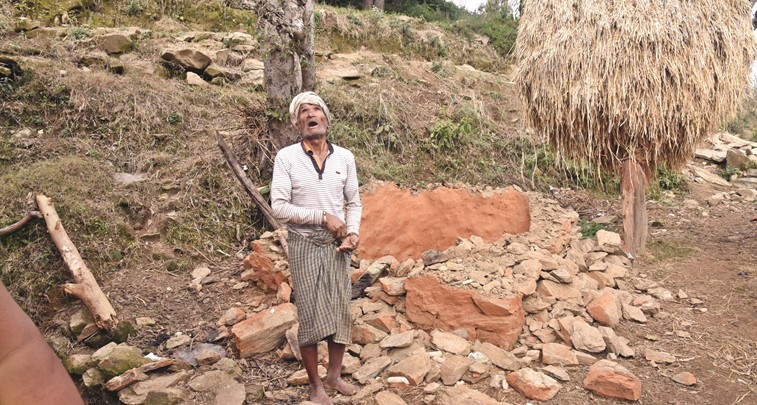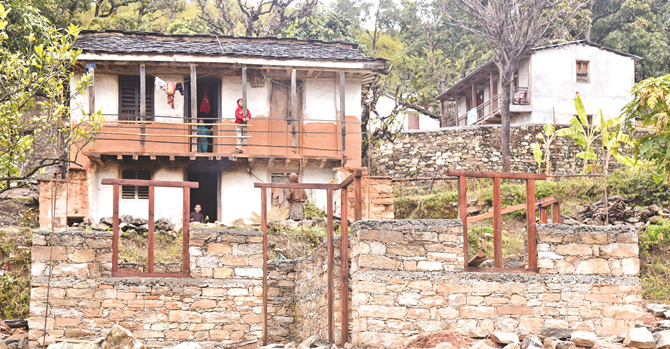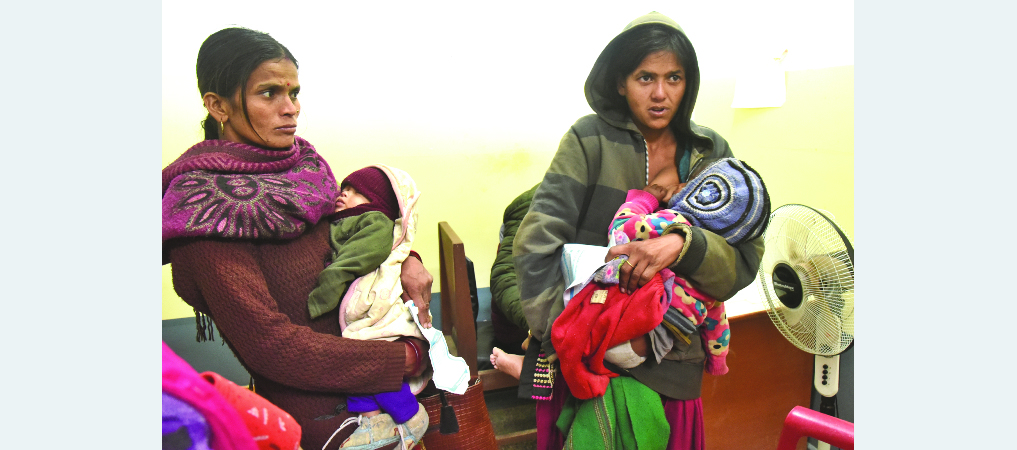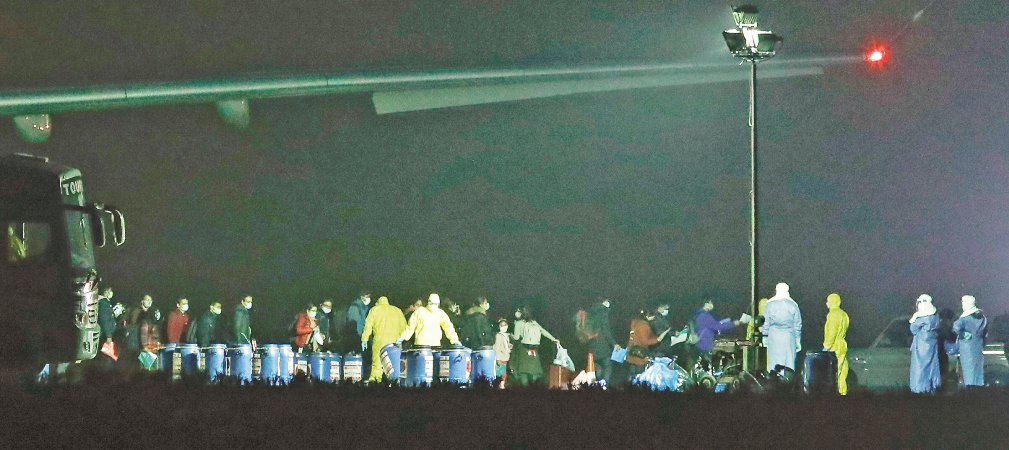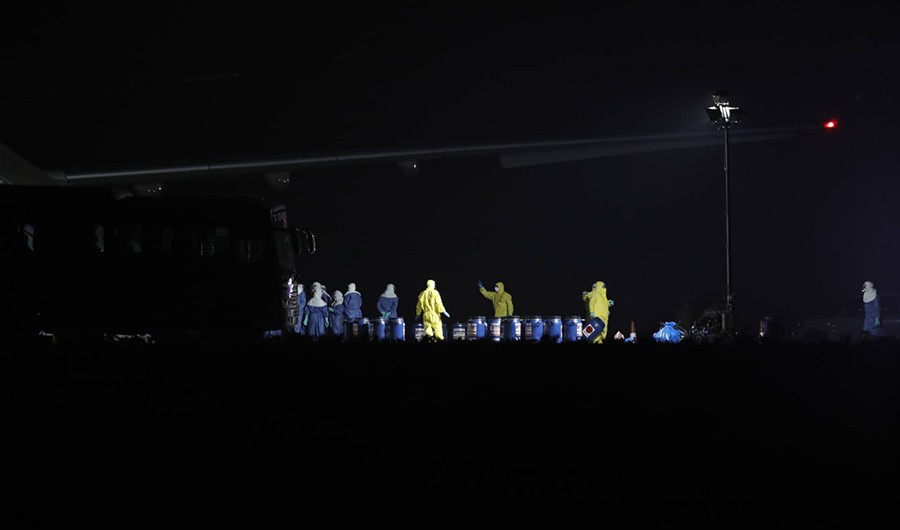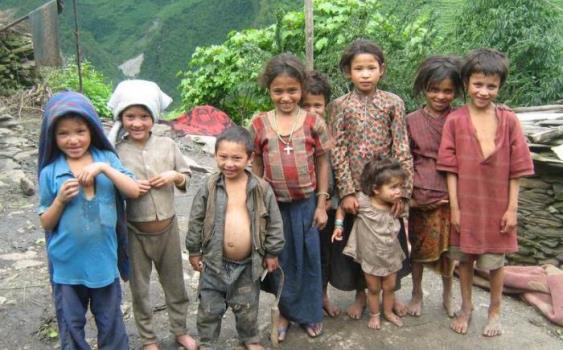Virus puts Maternity Hospital in extra labour pain

By Ajita Rijal
Kathmandu, Mar. 20: At a time when the government is gearing up responses to protect the public from the infection of the coronavirus, the Paropakar Maternity and Women’s Hospital (PMWH) seems to be lagging behind as it has so far failed to arrange for water and soap for washing hands and sanitizer for the patients, attendants or visitors.
“The government has asked for washing hands frequently to avoid the virus, but neither water nor soap is available here,” said Laxmi Lama, a visitor who had come with her sister-in-law at the emergency ward.
“I didn’t even find a place for washing hands or get hand sanitizer for visitors and patients,” said Lama.
Talking to The Rising Nepal, Director at the hospital Dr Jageshwor Gautam said that the hospital was to install a water tap and provide liquid hand wash for the visitors by Thursday itself.
“The hospital is also displaying pamphlets, placards and banners to generate awareness about the COVID-19,” said Dr Gautam.
Laxmi Rijal, a nursing supervisor at the hospital, said that the hospital was producing hand sanitizer on its own. “We are producing hand sanitizer by mixing 100 ml rectified spirit with 2ml glycerin,” said Rijal.
The hospital is also planning to provide access of sanitizer to all the patients and visitors, added Rijal.
Patient flow and services
Being a tertiary central maternity care hospital, the hospital is always crowded. It provides all the obstetrics and gynecology as well as neonatal services. And all these care services are provided either free of cost or taking minimal charges.
When the TRN team reached the hospital on Thursday morning, the hospital was crowded with hundreds of patients standing in a serpentine queue in front of the ticket counter and video x-ray department.
Though we have also launched the online ticketing system, people are still unaware of the facility, said Dr Gautam.
Due to the overflow of patients, the service seekers are also compelled to wait for getting most of the services at the hospital.
Sumitra Pariyar, 23, who was at the hospital for video scanning, said, “My turn came six days after the doctor wrote his prescription.”
The fifth largest maternity hospital globally, it has special cervical cancer screening technology. However, it still lacks MRI services, other physical facilities and adequate space.
The hospital having 500 beds sees around 665 patients on a daily basis at the OPD department. The hospital provides services to 60 patients for delivery cases daily. Among them, 20-30 cases require caesarean section.
“The hospital is handling more critical referral cases, so most of the patients are
in need of caesarean section,”
said Dr Gautam. The hospital provides all the obstetrics and gynecology as well as neonatal services. It also provides services in radiology and pathology.
The hospital has followed the digitalisation process for keeping the records of its patients. “We are keeping electronic records of patients visiting this hospital,” said Dr Gautam.
Owing to the flow of patients, the hospital has started providing service from the paying department. “Our main focus is to retain doctors at the hospital as well as to provide easy services to the patients,” said Dr Gautam.
Around 30-50 patients visit the paying ward on a daily basis, said Dr Gautam, adding it had eased those patients who come from outside the valley. The hospital also has the facility of waiting room with a capacity to adjust 70 attendants.
The hospital has a model blood bank which always provides any type of blood in need.
Parsu Ram Dahal, Blood Bank Incharge at the hospital, said that 20-30 pints of blood are demanded by the hospital every day. “We are managing blood by organising mobile camps, donations and from the Red Cross Society,” said Dahal. “We fear whether the coronavirus scare may create blood shortage.”
Upon reaching the post-delivery ward, Angita Thapa, 28, from Kapan, said that she was happy with the service provided by the nurses this time. “I had my first delivery six years ago, but then nurses were not friendly and polite,” said Thapa, adding many things had changed in between.
Management of waste
Giving utmost priority to the safety of the patients, the hospital has prioritised proper management of waste.
“We segregate the waste into hazardous and non-hazardous categories, and sterilize the hazardous waste,” said Dr Gautam.
Currently, 39 per cent of the hospital waste is recycled. According to the hospital, 59 per cent of paper, 34 per cent of plastic, 4 per cent of glass and 3 per cent of rubber are recycled.
The hospital on average disposes 900 syringes per day. Previously these syringes used to be burnt in the open, releasing toxic pollutants. Now the disinfected syringes are recycled, which generates income for the hospital.
Maternity allowance
Ritu Tamang, 25, of Gundu, was found happy to get Rs 2,800 as maternity allowance. “After getting the free delivery service, my happiness has doubled with this allowance,” said Tamang. The hospital has been providing maternity allowance to around 50 new mothers daily.
With an objective to minimise the maternal and infant mortality rate, the hospital has been providing Rs. 2,000 to every new mother and additional Rs 800 is provided to mothers who complete all four antenatal checkups at the same hospital.
Recent News

Do not make expressions casting dout on election: EC
14 Apr, 2022
CM Bhatta says may New Year 2079 BS inspire positive thinking
14 Apr, 2022
Three new cases, 44 recoveries in 24 hours
14 Apr, 2022
689 climbers of 84 teams so far acquire permits for climbing various peaks this spring season
14 Apr, 2022
How the rising cost of living crisis is impacting Nepal
14 Apr, 2022
US military confirms an interstellar meteor collided with Earth
14 Apr, 2022
Valneva Covid vaccine approved for use in UK
14 Apr, 2022
Chair Prachanda highlights need of unity among Maoist, Communist forces
14 Apr, 2022
Ranbir Kapoor and Alia Bhatt: Bollywood toasts star couple on wedding
14 Apr, 2022
President Bhandari confers decorations (Photo Feature)
14 Apr, 2022



